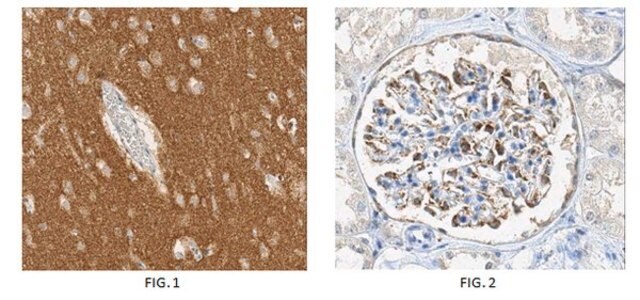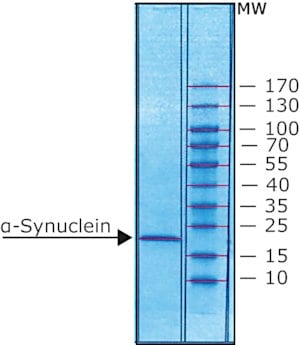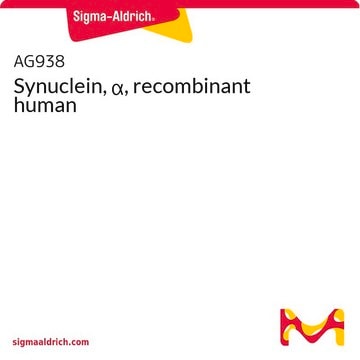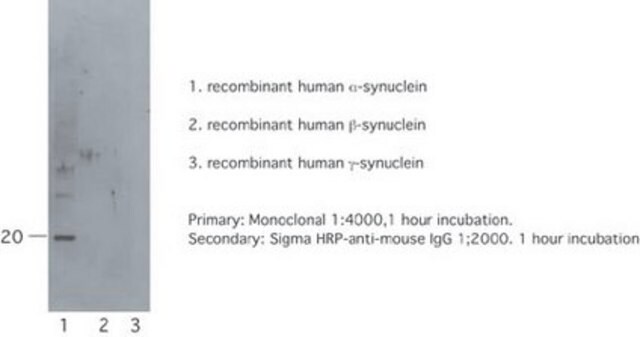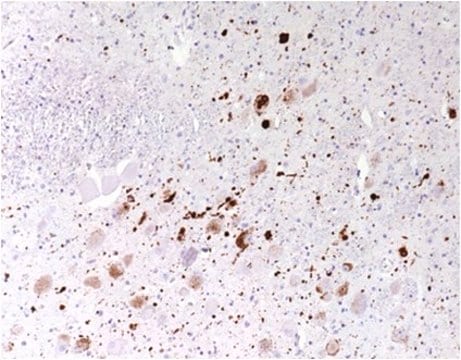36-008
Anti-α-Synuclein (SNCA) Antibody
UPSTATE®, mouse monoclonal, Syn211
Sinônimo(s):
Anti-NACP, Anti-PARK1, Anti-PARK4, Anti-PD1
About This Item
Produtos recomendados
Nome do produto
Anti-α-Synuclein Antibody, clone Syn211, ascites fluid, clone Syn211, Upstate®
fonte biológica
mouse
Nível de qualidade
forma do anticorpo
ascites fluid
tipo de produto de anticorpo
primary antibodies
clone
Syn211, monoclonal
reatividade de espécies
human
embalagem
antibody small pack of 25 μL
fabricante/nome comercial
Upstate®
técnica(s)
immunohistochemistry: suitable
immunoprecipitation (IP): suitable
western blot: suitable
nº de adesão NCBI
nº de adesão UniProt
Condições de expedição
ambient
modificação pós-traducional do alvo
unmodified
Informações sobre genes
human ... SNCA(6622)
Especificidade
Imunogênio
Aplicação
Neuroscience
Neurodegenerative Diseases
Qualidade
Descrição-alvo
Ligação
forma física
Armazenamento e estabilidade
Informações legais
Exoneração de responsabilidade
Não está encontrando o produto certo?
Experimente o nosso Ferramenta de seleção de produtos.
recomendado
Código de classe de armazenamento
12 - Non Combustible Liquids
Classe de risco de água (WGK)
WGK 1
Ponto de fulgor (°F)
Not applicable
Ponto de fulgor (°C)
Not applicable
Certificados de análise (COA)
Busque Certificados de análise (COA) digitando o Número do Lote do produto. Os números de lote e remessa podem ser encontrados no rótulo de um produto após a palavra “Lot” ou “Batch”.
Já possui este produto?
Encontre a documentação dos produtos que você adquiriu recentemente na biblioteca de documentos.
Active Filters
Nossa equipe de cientistas tem experiência em todas as áreas de pesquisa, incluindo Life Sciences, ciência de materiais, síntese química, cromatografia, química analítica e muitas outras.
Entre em contato com a assistência técnica
